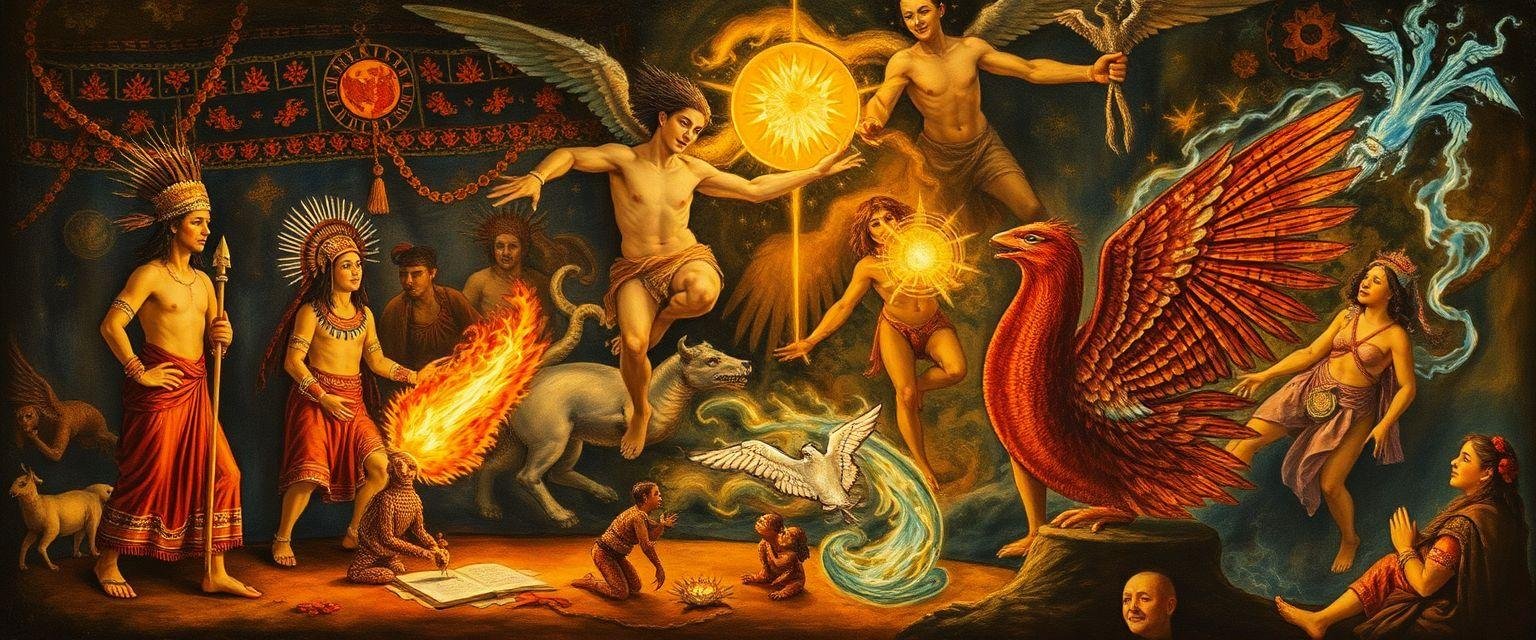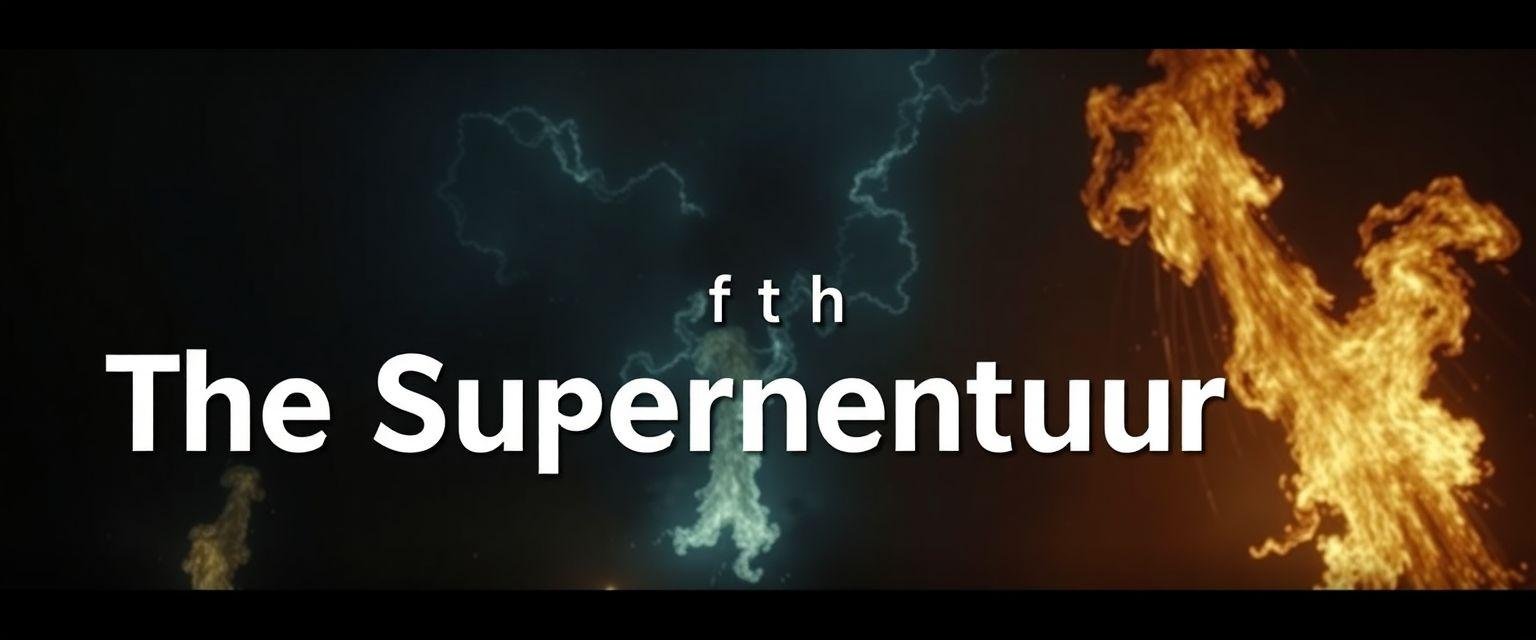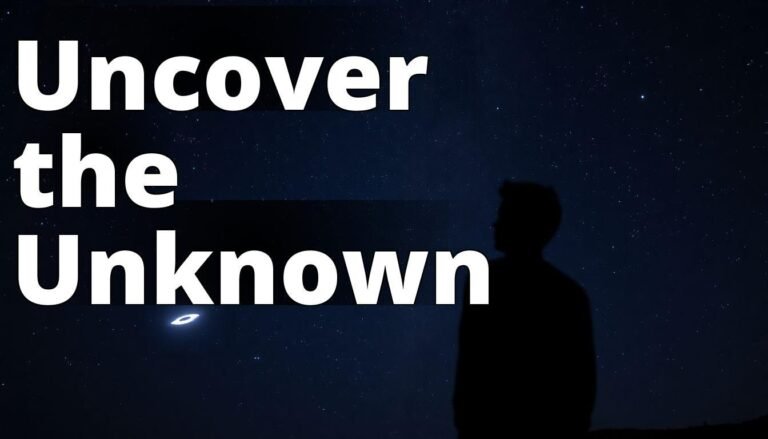The Language of the Supernatural
What if the words we use daily are not just arbitrary labels but powerful tools shaping our very understanding of the world? From describing the mystical to explaining the mundane, language is the lens through which we perceive reality. In the realm of the supernatural, the words we choose can either illuminate or obscure the phenomena we seek to understand. But how exactly does language shape our understanding of the supernatural?
Understanding Language’s Influence
Explore how language impacts our perception of the supernatural and reality.
– Language shapes our comprehension of supernatural concepts, influencing how we interpret experiences and beliefs.
– Specific terms and expressions can frame our understanding, often creating boundaries around what is considered possible or impossible.
– Cultural variations in language lead to diverse interpretations of supernatural phenomena, highlighting the role of context in shaping beliefs.
The Language of the Supernatural
The supernatural has always existed at the fringes of human understanding, a realm populated by ghosts, spirits, and phenomena that defy scientific explanation. But our perception of these phenomena is profoundly influenced by the language we use to describe them. Consider the term “supernatural” itself a compound of “super,” meaning above or beyond, and “natural,” implying the ordinary world we know. This single word encapsulates a universe of phenomena that exist beyond the scientific and the ordinary.
Language as a Lens
Language acts as both a map and a filter, guiding our understanding of the supernatural. For instance, in ancient times, phenomena like lightning or eclipses were often attributed to the whims of gods. The language of mythology shaped human understanding, embedding these events with divine significance. As science progressed, the language evolved, shifting from the mystical to the empirical. Today, lightning is explained through the language of physics and meteorology, stripping it of its supernatural cloak.

The Role of Semantics
Semantics, the study of meaning in language, plays a crucial role in how we interpret supernatural events. The words we choose can drastically alter the perception of an event. For example, describing a house as “haunted” imbues it with a sense of mystery and fear, while calling it “historically significant” might evoke curiosity and respect. This semantic shift can transform our emotional response and even our willingness to engage with the supernatural.
Insider Tip: Linguist Dr. Jane Simmons suggests that carefully examining the etymology of words related to the supernatural can reveal cultural shifts in perception over time.
In the age of clickbait and SEO, the power of language is often harnessed to capture attention rather than convey truth. Headlines scream of ghost sightings and paranormal activity, drawing readers into articles that may offer little substance. The sensational language creates a narrative that captivates but may also mislead. This highlights a crucial question: are we shaping our understanding of the supernatural, or is the language of the supernatural shaping us?
Learn more about the impact of language on perception
The Scientific Perspective
While the supernatural is often seen as beyond the realm of science, researchers have attempted to apply scientific methods to study these phenomena. For instance, the field of parapsychology explores psychic phenomena such as telepathy, clairvoyance, and psychokinesis. However, the language of science, rooted in empirical evidence and reproducibility, often clashes with the anecdotal and subjective nature of supernatural experiences.
Case Study: The Ganzfeld Experiment
One of the most well-known scientific attempts to study the supernatural is the Ganzfeld experiment. This experiment aimed to provide evidence of telepathy by isolating participants from sensory input and attempting to transmit information from one person to another. Despite some studies reporting positive results, the scientific community remains skeptical, citing methodological flaws and the challenges of replicating findings.

The language used in scientific discourse, with its emphasis on objectivity and skepticism, often dismisses supernatural claims as pseudoscience. This creates a dichotomy between the language of belief and the language of science, leading to a question: can the supernatural ever be reconciled with scientific language, or are they destined to remain in separate realms?
Insider Tip: Parapsychologist Dr. Rupert Sheldrake argues that expanding scientific language to include terms for phenomena not yet understood could pave the way for breakthroughs in understanding the supernatural.
Cultural Perspectives and Language
Different cultures have their own linguistic frameworks for understanding the supernatural. In many Indigenous cultures, the supernatural is deeply intertwined with the natural world, with language reflecting a seamless integration of the two realms. For example, the Hopi language contains no word for “supernatural,” as their worldview does not separate the sacred from the everyday.
Comparative Analysis: Western vs. Non-Western Views
In Western cultures, the supernatural is often viewed as separate from the natural, a realm of mystery and fear. This dualistic view is reflected in language, with terms like “paranormal” and “otherworldly” emphasizing the division. In contrast, many non-Western cultures view supernatural phenomena as part of the natural order, with language that reflects harmony rather than separation.

This raises an intriguing question: how does the cultural context of language shape our understanding of the supernatural? Are Western interpretations more skeptical due to a linguistic focus on separation, while non-Western interpretations may be more accepting due to a language of integration?
Explore more about cultural perspectives on the supernatural
The Influence of Media Language
Media plays a pivotal role in shaping public perception of the supernatural. From movies to television shows, the language used in scripts and narration influences how audiences understand and react to supernatural themes. Consider the difference in language between a horror film and a documentary on paranormal investigations. The former uses language to evoke fear and suspense, while the latter may employ scientific or historical language to lend credibility.
Language in Film and Television
Film and television often blur the lines between fiction and reality, using language to create compelling narratives. The choice of words, tone, and style can transform a supernatural story into a gripping thriller or a heartfelt drama. This linguistic artistry can captivate audiences but also color their understanding of what is possible or real.

Insider Tip: Screenwriter Laura Marks emphasizes the importance of language in scriptwriting, noting that subtle word choices can radically alter a scene’s impact.
The rise of reality TV shows focusing on ghost hunting and paranormal activities further complicates the picture. The language of these shows often straddles the line between entertainment and investigation, leaving viewers to question the authenticity of what they see. This leads to another question: In an era where media language shapes our understanding of the supernatural, how do we discern fact from fiction?
The Future of Language and the Supernatural
As language evolves, so too does our understanding of the supernatural. New terms and phrases emerge, reflecting shifts in societal attitudes and technological advancements. The rise of the internet and social media has introduced a new lexicon for discussing the supernatural, with terms like “creepypasta” and “urban legend” gaining popularity.
The Impact of Technology
Technology has not only changed the language we use but also how we experience and report supernatural events. The ability to capture and share experiences instantly via smartphones and social media platforms has democratized the narrative, allowing for a broader range of voices and interpretations.

This democratization raises a final question: As technology continues to influence language and the dissemination of information, how will our understanding of the supernatural evolve? Will it become more inclusive and diverse, or will the language of sensationalism continue to dominate?
Discover how technology is changing the language of the supernatural
Conclusion
The language of the supernatural is a powerful force, shaping our understanding of phenomena that lie beyond the ordinary. From ancient myths to modern science, cultural perspectives to media portrayals, language influences how we perceive and interpret the supernatural. By examining the words we use, we can gain deeper insights into our beliefs and challenge the boundaries of what is possible. As language continues to evolve, so too will our understanding of the supernatural, offering endless possibilities for exploration and discovery.
In a world where language can both illuminate and obscure, we must ask ourselves: How will we choose to shape our understanding of the supernatural? Will we let language limit us, or will we use it as a tool to expand our horizons and embrace the mysteries that lie beyond?
FAQs
How does language influence our understanding of the supernatural?
Language frames our perceptions and interpretations of supernatural events.
What role does language play in discussing supernatural phenomena?
Language provides the structure to articulate and share supernatural experiences.
Who benefits from understanding how language shapes supernatural ideas?
Researchers and enthusiasts gain insight into cultural perceptions of the supernatural.
How can language barriers affect beliefs in the supernatural?
Language barriers can lead to misunderstandings and misinterpretations of beliefs.
What if I don’t believe in the supernatural? Can language still impact me?
Even skeptics are influenced by language when interpreting cultural narratives.
How can I explore this topic further in relation to physics?
Investigating the intersection of language and physics can reveal new insights.







